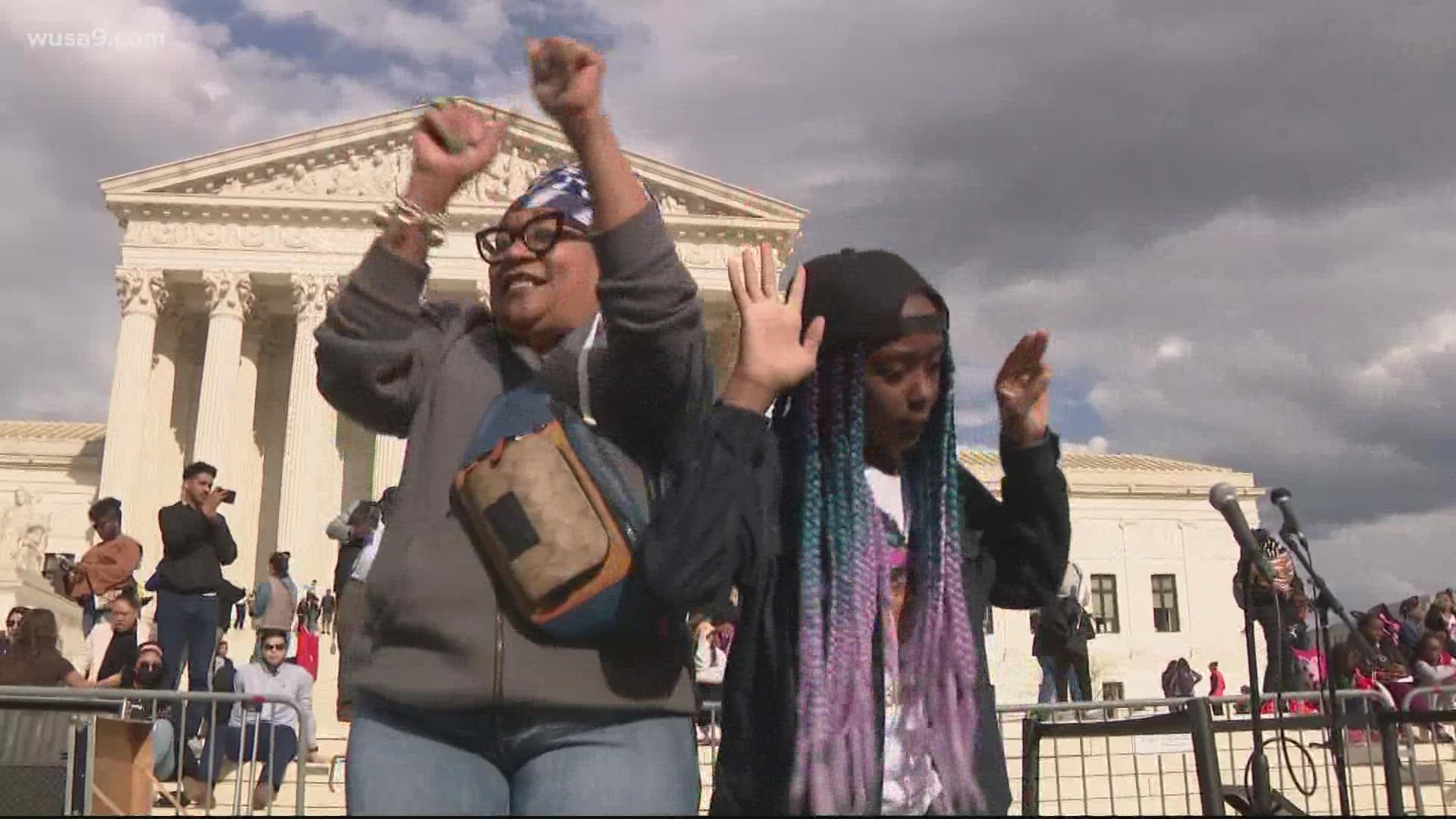WASHINGTON — Hundreds of people gathered on the steps of the U.S. Supreme Court Friday to celebrate the first Black woman confirmed to serve on the nation’s highest court.
The U.S. Senate confirmed Judge Ketanji Brown Jackson's nomination Thursday by a vote of 53-47.
The Miami-raised, District-born judge’s nomination and subsequent confirmation is celebrated by those who have called for more diversity on the Supreme Court.
Jackson will be sworn in to the bench after Justice Stephen Breyer retires at the end of the court's term, likely in June or July. Once she is sworn in, four of the nine justices on the Supreme Court will be women and one-third of the justices will be people of color.
The People For the American Way Foundation, as well as about two dozen other civil rights organizations, spoke outside the court Friday about the changing makeup of the court.
D.C. Councilmember Christina Henderson brought her toddler daughter to the public celebration. Henderson, a Black woman, said she wanted her child to witness history.
“The sky is the limit and another glass ceiling or concrete ceiling has been broken,” she said.
Reverend Leslie Watson Wilson, who serves as the national director of African-American Religious Affairs for People for the American Way, is among those who pushed for Jackson’s appointment to the court. Wilson told WUSA9 said that Jackson's confirmation proves anything is possible when you fight for it.
“She’s going to be speaking wisdom,” she said “She’s going to be speaking experience. She’s going to be speaking to folks that probably have never thought that they would be spoken to – not from those seats up there.”
Markus Batchelor serves as deputy director for the leadership programs for People for the American Way.
He said having a more diverse court will positively impact minorities and women in America.
“It means that the courts will finally look like America,” he said. “And, what we’ve known is that courts that didn’t reflect that diversity, courtrooms, juries that didn’t reflect that diversity have been used as a tool to suppress and oppress for decades.”

